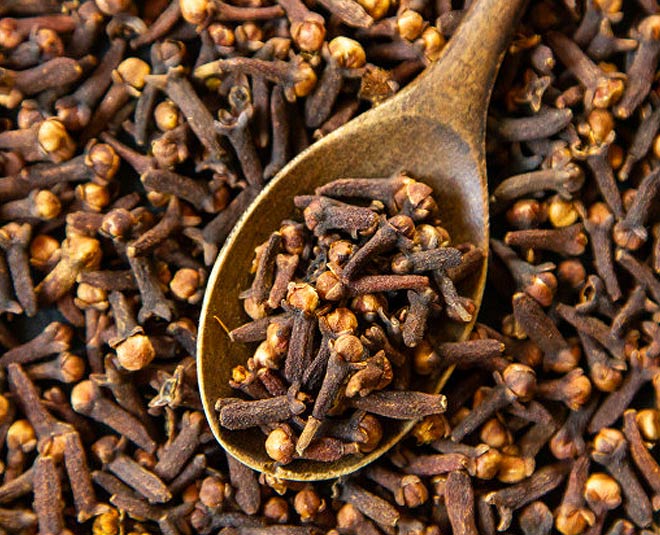Benefits of Cloves| Culinary Uses of Cloves
There is a distinct aromatic taste to cloves, as they are the dried, unopened flower buds of the evergreen clove tree, which are commonly used in cooking and traditional medicine for their sweet and pungent flavor.
Introduction:
As a popular spice used for cooking and medicine for centuries, cloves have been used in various cultures for centuries. The clove tree is an evergreen tree that is native to the Maluku Islands in Indonesia but is also grown in many tropical regions including India and Brazil as well.
The clove bud has a sweet, pungent flavor that pairs well with many foods, and it is the dried, unopened flower buds of the tree.
History of cloves
For over 2,000 years, clove trees have been cultivated on the Maluku Islands in Indonesia. As a result of their aromatic properties, cloves were valued by ancient Romans and Greeks, and in the 1st century, the Roman naturalist Pliny the Elder described cloves as “the most precious of all trees.”
During the medieval period, cloves were highly prized and used as a form of currency in trade. The demand for cloves was so great that they were sometimes described as “pearls of the East.”
A monopoly on the spice trade was established by the Portuguese in the 16th century after they began trading cloves. By the 19th century, clove plantations had been established in places like Zanzibar, Pemba, and Madagascar, where the Dutch and British became major players in the clove trade.
There are still many uses for cloves today, including cooking and traditional medicine. They are cultivated in tropical regions around the world, including Indonesia, India, and Brazil.
Benefits of Cloves:
There are several potential health benefits associated with cloves, a spice often used in cooking. There are several potential health benefits associated with cloves, including:
- Reducing inflammation: Inflammation in the body may be reduced by cloves because they contain antioxidants.
- Relieving pain: A clove contains anesthetic and pain-relieving properties, and they may be effective in reducing the pain associated with toothaches and other types of pain.
- Reducing oxidative stress: There is evidence that cloves contain antioxidants that reduce oxidative stress in the body, which is responsible for causing cell damage and chronic diseases.
- Improving immune function: Boosting the immune system and improving overall health may be possible with cloves.
- Reducing the risk of chronic diseases: The use of cloves may be beneficial in preventing cancer and heart disease, among other chronic diseases.
- Improving digestion: There is evidence that cloves may assist in improving digestion and alleviating digestive symptoms such as bloating and gas.
It’s important to note that more research is needed to fully understand the potential health benefits of cloves and to determine the appropriate dosage and usage.
As with any new supplement or food, it’s always a good idea to speak with a healthcare professional before adding it to your diet.
Nutritional value of cloves:
There are several health benefits associated with cloves. One tablespoon of whole cloves (about 7 grams) contains the following nutrients:
- The calories in this snack are 19
- The amount of fat in this product is 0 grams
- The carbohydrate content of this product is 4 grams
- A gram of fiber is contained in every serving
- The protein content of this product is 1 gram
Also, cloves are rich in antioxidants, which act as protection against free radical damage. Several health conditions have been linked to free radicals, such as cancer, heart disease, and inflammation, which are unstable molecules capable of causing damage to cells.
Apart from their antioxidant contents, cloves also contain several essential oils and compounds, including eugenol, which functions as an anti-inflammatory and pain-relieving agent.
Cloves should be consumed in moderation since they have a potent flavor and may cause side effects in some individuals. They should also be avoided by pregnant women due to their potential to stimulate uterine contractions.
Culinary uses of cloves:
Cloves are a popular spice used in a wide variety of dishes throughout the world. They have a sweet, pungent flavor that pairs well with a variety of ingredients, and can be used to enhance the flavor of a variety of dishes.
Baking is one of the most common uses of cloves. They are often used to flavor cakes, cookies, and other baked goods, as well as marinades, glazes, and sauces for meat. As well as being a key ingredient in several spice blends and rubs, cloves can also be used to enhance the flavor of soups, stews, and braised dishes.
In addition to their use in cooking, cloves are also used in traditional medicine. They are believed to have anti-inflammatory and pain-relieving properties and are often used to treat toothaches and indigestion. As a natural breath freshener, cloves can also be chewed or incorporated into mouthwashes.
Conclusion:
A variety of ailments have been treated with cloves, in addition to their use in cooking. They contain high amounts of antioxidants and essential oils and compounds such as eugenol, which have anti-inflammatory and pain-relieving effects. As a spice, cloves have a distinct flavor and offer numerous health benefits.


